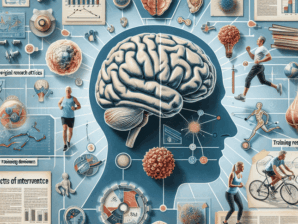It is now online the article: “The Effects of Multidisciplinary Intensive Rehabilitation on Cognitive and Executive Functions in Parkinson’s Disease: A Clinical Database Analysis” by Ivana Baldassarre, Rossella Rotondo, Laura Piccardi, Lorenza Leonardi, Danilo Lanni, Maria Gaglione, Fabrizio Stocchi, Massimo Fini, Michela Goffredo, Elvira Padua, and Maria Francesca De Pandis published in Journal of Clinical Medicine.
This study is based on data collected from a medical health record review to assess whether multidisciplinary intensive rehabilitation treatment in Parkinson’s disease (PD) patients can improve global cognitive functioning and executive functions. The data related to PD patients were extrapolated from a clinical database called “NeuroRehab”. A total of 104 PD patients (51 males; 53 females) performed 6 weeks of multidisciplinary intensive rehabilitation treatment in clinical practice from January 2019 to May 2023. This training program was characterized by three daily sessions of 60 min of activities (muscle relaxation and stretching exercises, moderate physical aerobic exercise, and occupational therapy). The patients were classified and stratified according to disease severity (according to the Hoehn and Yahr scale), postural instability and gait difficulty (PIGD) or tremor-dominant (TD) subtypes, disease duration (DD), and the presence of dyskinesias. The effect of multidisciplinary intensive rehabilitation treatment on cognitive and executive functions was evaluated through the administration of cognitive tests, such as the Mini–Mental State Examination (MMSE), Montreal Cognitive Assessment (MoCA), and Frontal Assessment Battery (FAB). All the parameters were evaluated at the baseline (T0) and at the end of the rehabilitation program (T1). Our results show that the multidisciplinary intensive rehabilitation treatment significantly improved cognitive performance. The MMSE, MoCA, and FAB test scores after the rehabilitation program (T1) were significantly higher compared to the scores obtained at the baseline (T0). Moreover, further analyses performed in subgroups of the patients who scored below the cut-off in the MMSE showed that at least 50% of patients overcame the cut-off score. Interestingly, the same analyses performed for the MoCA and FAB revealed a higher rate of improvement in cognitive functions, with normal scores in both tests after 6 weeks of multidisciplinary intensive rehabilitation treatment. This study revealed the potential effects of a 6-week






